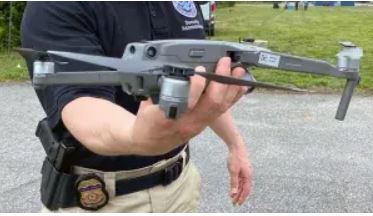
As the United States Transportation Security Administration (TSA) this month held its first drone response training outside the country since the start of the COVID-19 epidemic, the administration warned of criminal, terrorist and more generic threats posed by unmanned aircraft.
This case as the TSA hosted its first UAS regional training in the Western Balkans – a three-day arrangement in Zagreb, Croatia that gathered together 28 aviation representatives from seven Eastern European countries. TSA Administrator David Pekoske painted the training operation was one to help strengthen international counterterrorism efforts.
While terrorism has taken the focus for much of the world for many years, not all threats are so overarching.
“After several decades of conflict and economic turbulence, airports and air carriers in the region are growing in terms of flights and passenger loads,” Steve Petrick, TSA representative, said. “Unauthorized (drones) flying near airports can pose serious safety and security risks and cause disruptions and delays impacting airport operations.”
Through this training and other initiatives, the TSA sought to expand global partnerships and improve both international terrorism prevention measures and basic aviation security. The Croatian course included a look at available planning, training and equipment, while spurring participants to develop their own UAS response plans, exercises and teams. Risk assessment, emergency procedures and incident reporting all were a focus.
“Small UAS containing advanced aviation capabilities are easily available on the commercial market,” Transportation Security Specialist Gus Anderson said. “These advanced technologies allow drones the ability to travel further and longer, creating a unique security challenge to commercial aviation.”
Petrick and the TSA noted that this will likely be the first of a series of regional trainings.




